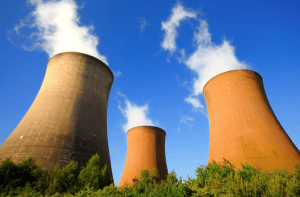Ghana government to announce decision on nuclear plant vendor country and technology
 The Ghana government will soon announce its decision on the vendor country to build the country’s first one gigawatt nuclear plant by 2030.
The Ghana government will soon announce its decision on the vendor country to build the country’s first one gigawatt nuclear plant by 2030.
The plant will serve as a baseload for the country.
The announcement will also make known the type of nuclear power technology the country decides on to address its energy poverty and fulfil the global obligation of transition to cleaner energy.
Mr William Owuraku Aidoo, a Deputy Minister of Energy, speaking at the opening of a three-day training for journalists in Accra, said the Government and experts were finalising the selection of the preferred site for the nuclear power plant.
The workshop seeks to provide journalists the opportunity to share knowledge and strengthen their understanding of nuclear power issues.
The NPG through the Ministry of Energy had issued Requests for Information to six vendor countries to seek technical, financial and contractual information from the vendor countries regarding the technology to deploy for the building of nuclear power plant.
A total of 15 responses were received from vendor countries, including China, Russia, United States of America, South Korea, Canada and France.
Six of the responses received proposed large nuclear reactor technology while nine made offers for small nuclear reactors.
Mr Aidoo said technology safety was critical in Ghana’s choice and that the Government would ensure that due diligence was maintained in all decisions.
The decision will focus on the Large Reactor (1000 1200 Megawatt (MWe) and Small Modular Reactor (< 300 MWe, in modules).
Dr Stephen Yamoah, Executive Director of Nuclear Power Ghana, said the country was in its second phase and that key expected deliverables at the end included a site approval report for site permit, and site evaluation report for construction permit.
The rest are vendor/technology selected, contract signed or under discussion, self evaluation report for Phase two and project feasibility report.
He said already, phase one of the activities, which included human resource and pre-feasibility study, the establishment of legal and regulatory frameworks to pave the way for the declaration, had been completed.
Dr Yamoah said four candidate sites, which met requirements such as closeness to a water body, security, safety, and population density, had been identified.
The Executive Director said all the candidate sites were close to large water bodies because, “high quality steam makes the turbines run to supply electricity to the network through the alternator.
“Once the quality of the steam decreases, it cannot be of use for electricity production anymore. It has to be cooled down till it turns back to water that can be reused to produce high quality steam. This cooling takes place in the condenser and requires large quantities of cooling-water.”
Ghana in its quest to access affordable and stable power to industrialise sustainably as well as to meet the global energy transition from fossil fuel to clean energy is seeking to include nuclear power to its energy mix.
Experts say Ghana has exhausted its hydro base as an energy source and looking to explore other clean options such as nuclear power that has a long- term energy security, devoid of environmental challenges that compromise the ability of future generations to meet their own needs.
NPG has, therefore, been mandated to build Ghana’s first Nuclear Power Plant to produce affordable electricity in a safe and environmentally friendly manner for socio-economic development.
The mandate, underpinned by provisions in Sustainable Development Goals seven and 13, is critical and has implications for the achievement of the nation’s economic and industrial development goals.
The Nuclear Projects will help the country achieve its updated ten-year, Nationally Determined Contributions under the Paris Agreement, which aims at reducing 64 million tonnes of carbon dioxide equivalent (MtCO).
Source: GNA
